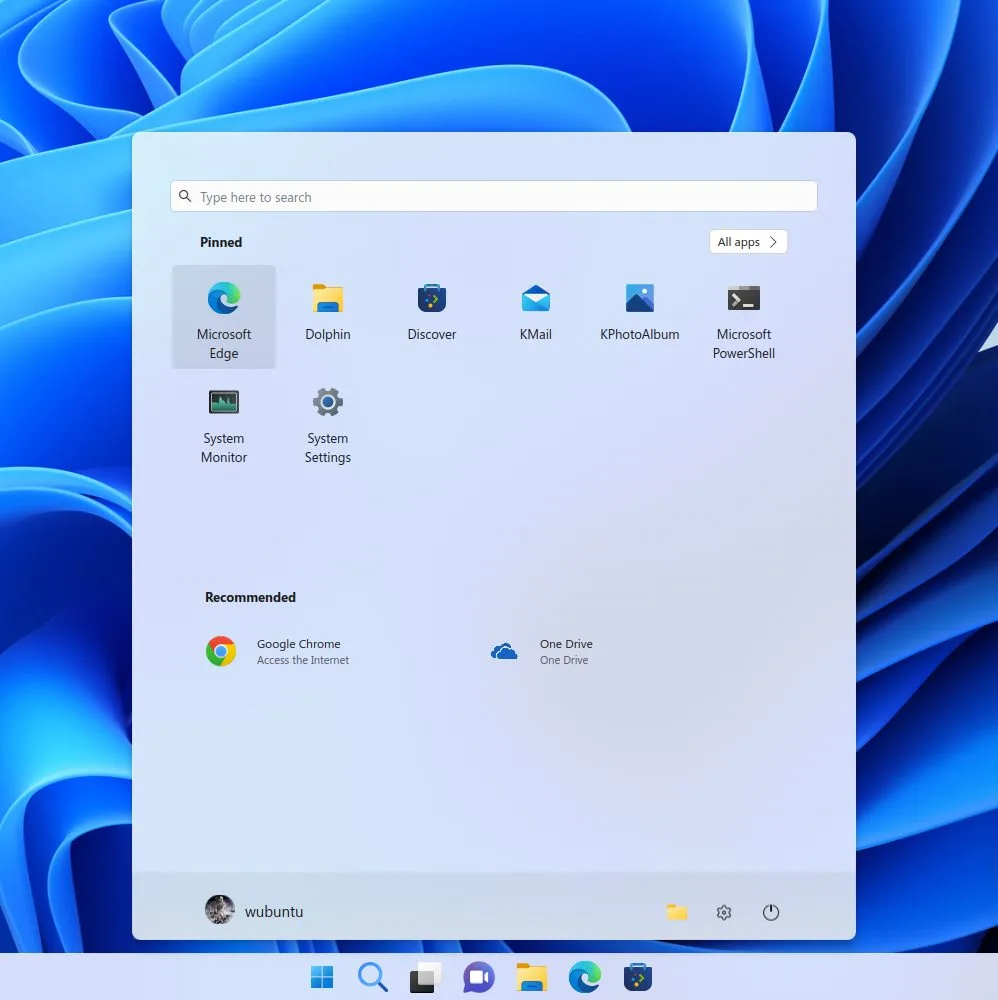- cross-posted to:
- gnulinuxitalia
If that tricks windows users into switching, and debunk the idea that one needs to be some sort of hacker to touch linux, I’m all in.
remember Lindows?
@jsveiga @invalido_incazzato what are the actual benefits of using Linux over windows or MacOS? Because I’m saving for a MacBook for computer science but I’m open to trying Linux.
(for context: My first job out of college was as an AIX - IBM’s Unix - systems engineer, I’ve administered Linux servers as part of another job for 20 years, and I’m currently working as a sr SW developer since 2018, android/java, C#, js/ui5 for SAP-integrated systems)
My home destop is exclusively running Linux since the late 90s, and that’s what my (non-technical) wife uses for everything. The benefits over Win/Mac in this case are pretty clear: Stability, security, privacy, cost (hw and sw), longevity of “support” (availability of updates while running on ancient albeit capable hardware).
On my previous job, I used Linux (RedHat for a while, then Debian) on servers (headless, no gui) for every server possible function: network shares, web/mail/db/dns/dhcp server, proxy/vpn/firewall, etc. Benefits there are the same as above, plus “autonomy”: once properly setup, they need much less babysitting than windows servers, which sometimes manage to break themselves if left alone, and no need for expensive third party solutions for anything.
On my current job I still help with SUSE Linux servers administration, as HANA (SAP’s database runs on that). Benefit here are stability, security, performance, resources usage, and, well, that’s what is needed to run HANA.
Now, as a platform for learning computer science, it depends. Apart from the occasional automation or interop script, all my development in the last 5 years has been on Windows, because that’s what most companies and end users will have. There’s no sense (although it’d be possible) in using Linux as a development environment if I’m developing things that will run on Windows (ok, android would be an exception, but the nodejs/ui5 will run on customers’ windows servers, and the SAP B1 addons on windows clients).
So if you intend to develop solutions for MacOS and iOS, using MacOS is technically the best option. If you intend to learn Linux administration, Linux is the best choice. If you intend to develop Windows solutions, Windows is the best choice. If you want the safest, more stable, and cheapest desktop, Linux is the best option - If you actually use it instead of falling into the distro hopping hole.
Linux (and windows, and macos) are tools, not the final goal. None is better than the other in EVERY aspect, for EVERY purpose. You have to choose one that is better for your intended purpose.
@jsveiga how is linux more safe and stable?
There is no single reason; OSs are very complex; I’ll try to point to some possible reasons, some of them are maybe fuzzy personal opinions.
Note that in terms of stability and safety I don’t think MacOS is as bad as windows. MacOS is a Unix OS; Linux cloned and inherited a lot from Unix, and is considered a “Unix-like” OS.
Roughly speaking, Unix evolved on servers, having to take care of multi user, multi threaded juggling. Windows was born as a single user, single task, desktop OS, and evolved to a terrible server OS (from a Unix point of view), trying to keep the same “look and feel”.
Availability:
Last time I installed Visual Studio on a Windows SERVER, it asked me to reboot to finalize the installation. That was a production server (I needed VS to a quick debug), with dozens of users and a database.
It also happened to me that upon connecting to a Windows server, it decided to install an audio driver (for a local device it would use through RDP), and… asked for a reboot.
How is it possible that MS considers it OK to need to reboot to install an IDE or an audio driver??
Apart from those, many simple Windows configurations will ask for a reboot. That’s Ok if you’re running an XBox. Not Ok on a server.
With Linux, only a kernel change requires reboot - and you can even avoid that too, with livepatch.
If a company doesn’t take its OS seriously enough to solve these simple issues (or doesn’t have the competency to do it), how reliable can that OS be?
Stability:
Here I think the main reason is complexity. Yes, no kidding. Linux may seem harder and less user friendly for end users, but as an OS it is incomparably simpler and well though of than Windows.
Some examples: Configurations are in text files, neatly separated by systems, usually in standard locations (/etc for example), and even when they are not there, you can locate them from the sw package file list or sources (ok,ok, user configs could be better standardized in their home dirs, but yet). When a sw is uninstalled and purged, it takes all its system config files with it. Compare that with an ever bloating registry on windows with everything piled up and leftover there.
When a dependency is not used by any other sw, if you were a good boi and always used package managers, the dependecy is removed automatically (or through the package manager - you can actually see who depends on who, and who is needed). Very different from the ever growing leftovers from uninstalled programs on Windows.
Everything being open source and (with modern distros) neatly tested and packed by your single distro maintainers also makes it much harder for dependency and incompatibility issues to happen.
Also because of its multi-user, multi-task roots, Unix/Linux is MUCH less prone to “bluescreen” because of one single program or driver crashing. Ok, windows has gotten better over the years, but not there yet.
Linux also makes much better use and management of resources (which makes it able of doing the same things as windows, using less CPU and memory, and faster), which also translates in more robust stability.
Being open source, you also have an incomparably larger number of people helping fix issues - I’m no kernel developer, but I could help one diagnose an obscure ethernet driver issue (didn’t occur with their switches), because I had the sources and could run “bisect”. I had an Intel intermittent driver issue solved by an Intel kernel module developer in a matter of days. When was the last time you directly interacted with a MS developer to solve an issue?
Security:
Lets start with the elefant first: Yes, I agree that one of the reasons Linux is safer is because it’s less targeted by attacks. But it is also true that one of the reasons it’s less attacked is that it is harder to compromise.
A Windows computer rarely will have just Windows. It has a lot of software that the user installed, a lot of bloatware MS installed, more bloatware from the computer maker, some more installed everytime you plug or connect a new device, etc. Most of these softwares are closed source and many you don’t even know where they came from and why are they installed. A lot of them phone home to send your precious data. Is it just me or this sound much harder to keep safe than having all software coming from scrutinized open source, from the same distro repository, not eager to get your data?
Then again, the server roots vs the desktop toy roots: Unix/Linux are more serious about “compartmentalizing” processes, users, and accesses. One very simple example of this different mindset, which has much more ramifications: Windows uses a couple of accounts as the default runner of Windows services. So if you don’t manually do something about that, you’ll end up with multiple different services running with the same account (thus having the same permissions to resources). The default on Linux when you install a service is that the installation will create an specific account to run the service. That account will have simple, minimal and very specific permissions to do its job.
Another example of this mindset: ssh will refuse to connect using exchanged keys if your .ssh config directory doesn’t have restricted permissions (for example, if it’s readable by other users). Have you ever seen such care from a MS product? The go-to “solution” for Windows users when something related to permissions doesn’t work is to give “everyone” full permissions - because that usually “solves” the problem. Well, that won’t work for your .ssh in Linux.
No OS is absolutely the best in every way. Windows and MacOS are IMO quite superior in the UI; the integration and UI consistency between different programs, and even the “less choices” (no multiple distros, windows managers, and even file managers ffs) makes it easier for the general user (and honestly, non-general users: the last time I installed and developed with Android SDK in Linux, maaany years ago, I had to go through much more tinkering than for doing it in Windows, at the same era. Sometimes you just want to use a program, not exercise your Linux freedom).
But look at the statistics for web server market share. When you’re not forced by business constraints (exchange server, ms sql server, windows centric network) to use Windows, and you’ll be exposed to all kinds of attacks from the internet, Linux dominates the market. Even Microsoft is learning that: https://www.cybersecurity-insiders.com/microsoft-uses-linux-instead-of-windows-for-its-azure-sphere/
@jsveiga thanks for the info and sorry if i can’t respond to that massive wall of text
No worries, I’m in recovery of reddit abstinence followed by vlemmy dying, so there is a lot of repressed typing there.
@jsveiga oh neat ill keep what you said all in mind, what distro would you recommend for someone who wants to learn the ropes of Linux.
Mi ricorda quello che facevo da adolescente
- Questo post è stato realizzato utilizzando Google Translate






